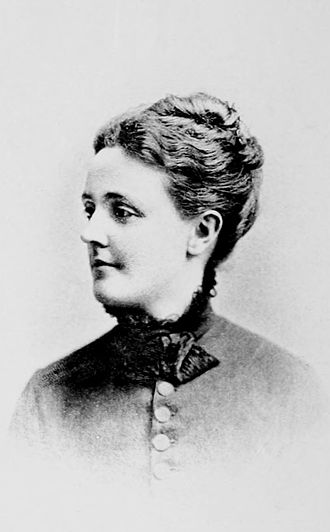
Sarah Orne Jewett
Publicamos la traducción ganadora en la categoría “Mejor traducción al español” de la XXVI edición del Premio Andreu Febrer de Traducción, este año dedicado a la traducción de narrativa breve del siglo XIX. Felicitamos de nuevo al ganador y ¡esperamos que disfrutéis de la lectura!
Traducción: Mary la francesita. Traducido por Marcel Garro Ricart, estudiante del Máster en Traducción Especializada de la Universidad de Vic – Universidad Central de Cataluña.
Texto original: Jewett, S. (1895). “Little French Mary”. En The Life of Nancy. Boston: Houghton-Mifflin. Disponible en una página de The Sarah Orne Jewett Text Project.
A continuación, publicamos un breve comentario sobre la traducción ganadora, redactado por Ronald Puppo, miembro del jurado.
The story takes place in the fictional small town of Dulham, not far from the Canadian border in the renowned writer’s native Maine — the perfect location for spotlighting an intercultural encounter between the Anglo-American townsfolk and a French-Canadian family whose little daughter, Mary, wins the hearts of the clutch of venerable elders gathered at the dry-goods store where Mary appears as in a fairy tale to make purchases. The Spanish translation skillfully balances the descriptive narrative voice with the colloquial dialogue of the men, featuring special strategic attention paid to the French-inflected English of the little girl; associative connotative meaning comes importantly into play as the little French girl’s English is earmarked by French pronunciation, challenging the translator to re-create appropriate French-language interference in Spanish. In addition, the translator taps the syntactic flexibility of Spanish (inversion of word order where appropriate and effective) and morphosyntactic features that power up lexical choices (pueblecito for country town) and lexical precision combined with collocative strength (lugar plácido for quiet place / recio for strong-looking / con los suyos for with their own folks). Finally, the translator makes dexterous use of reformulation where an excessively literal rendering might detract from the emotive punch of an image or phrase, as at the end of the story: no sabe lo que es despedirse’for she doesn’t know what parting is.
- Record de la Xesca - 11.06.2024
- Translating for universities - 16.05.2024
- Open expert conversations 2024 - 06.03.2024








